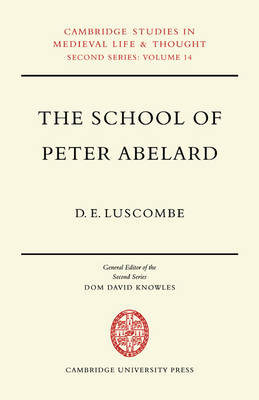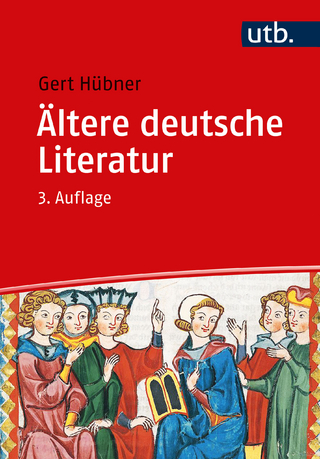
The School of Peter Abelard
The Influence of Abelard's Thought in the Early Scholastic Period
Seiten
2008
Cambridge University Press (Verlag)
978-0-521-08882-4 (ISBN)
Cambridge University Press (Verlag)
978-0-521-08882-4 (ISBN)
Dr Luscombe considers the influence of Abelard's principal teachings among his contemporaries and successors. His aim is to explain the conflicting estimates of Abelard which were current in the twelfth century and later, and to provide a full account of the writings and varied fortunes of Abelard's disciples.
Peter Abelard conducted many analyses of Scriptural and Patristic teachings, and achieved an extensive rapprochement between Christian and pagan thought. His public career was ended in 1140 by an ecclesiastical condemnation, but this touched upon the central issues facing the early leaders of the medieval scholastic movement and Abelard's own teachings continued to be controversial. Dr Luscombe considers the influence of Abelard's principal teachings among his contemporaries and successors. his aim is to explain the conflicting estimates of Abelard which were current in the twelfth century and later, and to provide a full account of the writings and varied fortunes of Abelard's disciples. He also examines the manuscript tradition of Abelard's work and that of his followers. The condemnation of 1140 repudiated Abelard's leading doctrines. This led some of Abelard's disciples to partly retreat from the position of their master, whereas some chose to adapt and extend his teachings.
Peter Abelard conducted many analyses of Scriptural and Patristic teachings, and achieved an extensive rapprochement between Christian and pagan thought. His public career was ended in 1140 by an ecclesiastical condemnation, but this touched upon the central issues facing the early leaders of the medieval scholastic movement and Abelard's own teachings continued to be controversial. Dr Luscombe considers the influence of Abelard's principal teachings among his contemporaries and successors. his aim is to explain the conflicting estimates of Abelard which were current in the twelfth century and later, and to provide a full account of the writings and varied fortunes of Abelard's disciples. He also examines the manuscript tradition of Abelard's work and that of his followers. The condemnation of 1140 repudiated Abelard's leading doctrines. This led some of Abelard's disciples to partly retreat from the position of their master, whereas some chose to adapt and extend his teachings.
1. The Literary Evidence; 2. Abelard's Followers; 3. The Diffusion of Abelardian Writings; 4. The Condemnation of 1140; 5. The Theological Writings of Abelard's Closest Disciples; 6. The School of Laon; 7. Hugh of St Victor; 8. The Summa Sententiarum; 9. Abelard and the Decretum of Gratian; 10. Abelard's Disciples and the School of St Victor; 11. Peter Lombard; 12. Robert of Melun; 13. Richard of St Victor; 14. Conclusion.
| Erscheint lt. Verlag | 30.10.2008 |
|---|---|
| Reihe/Serie | Cambridge Studies in Medieval Life and Thought: New Series |
| Zusatzinfo | Worked examples or Exercises |
| Verlagsort | Cambridge |
| Sprache | englisch |
| Maße | 140 x 216 mm |
| Gewicht | 480 g |
| Themenwelt | Geschichte ► Allgemeine Geschichte ► Mittelalter |
| Geisteswissenschaften ► Geschichte ► Regional- / Ländergeschichte | |
| Geisteswissenschaften ► Philosophie ► Philosophie des Mittelalters | |
| ISBN-10 | 0-521-08882-8 / 0521088828 |
| ISBN-13 | 978-0-521-08882-4 / 9780521088824 |
| Zustand | Neuware |
| Haben Sie eine Frage zum Produkt? |
Mehr entdecken
aus dem Bereich
aus dem Bereich
eine neue Geschichte des Mittelalters
Buch | Hardcover (2023)
C.H.Beck (Verlag)
38,00 €


